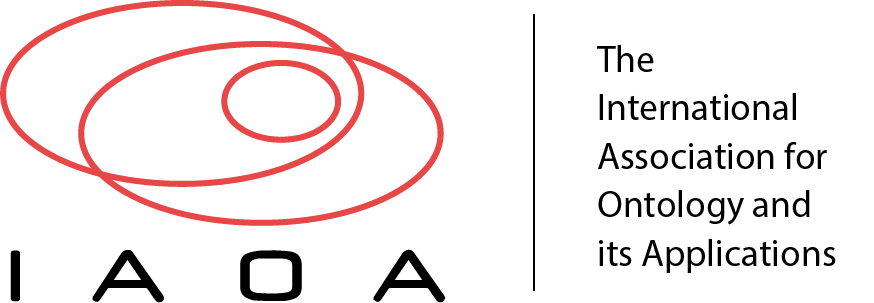First ESAO Webinar
First ESAO Webinar
November 9th, 11:00-12:00 EST, 17:00-18:00 CET
DESCRIPTION
———–
The IAOA has created the Educational Series on Applied Ontology (ESAO), a new educational effort directed towards topics of Applied Ontology, primarily established basics and foundations.
The series is inspired by the Interdisciplinary Schools on Applied Ontology (ISAO) (whose next edition will be in 2023). ESAO is complementary in format and its overall approach. The goal is to provide a combination of archive educational material (e.g. short video lectures) and a series of webinars for presenting and discussing that material.
The ESAO Series is open for all and welcomes students, researchers and practitioners alike. The launch event for this new series was held at the second Bolzano Summer of Knowledge (BoSK 2021), with seven webinar sessions according to the new format on a single day.
–> The first of the regular webinar sessions will be held on
November 9th, 11:00-12:00 EST, 17:00-18:00 CET, online.
No registration needed. The Zoom link for participating is:
https://univ-tlse2.zoom.us/j/99443318113?pwd=djcreEZHaWE5a1lSclNlWlR5YnpCUT09
Meeting ID: 994 4331 8113, Passcode: 410885
PROGRAM
——-
* 11:00-11:30 EST, 17:00-17:30 CET
Adrien Barton, Institut de Recherche en Informatique de Toulouse (IRIT) – CNRS, France
“Ontological realism: A philosophical overview”
Abstract:
Some applied ontologies explicitly adhere to a position named “ontological realism”. In this presentation, I will locate “ontological realism” within the landscape of the various forms of realism that have been proposed in metaphysics and philosophy of science, among which Platonic realism, Aristotelian realism, scientific realism, entity realism and structural realism.
* 11:30-12:00 EST, 17:30-18:00 CET
Lars Vogt, Leibniz Information Center for Science & Technology (TIB), Germany
“Boundaries and natural units”
Abstract:
I will present the concept of bona fide and fiat boundaries and review the problems involved with this approach for demarcating natural units, with examples from the life sciences, focussing on issues revolving around granularity and frames of reference. I will then introduce an alternative approach that focusses on the concept of causal unity.
ORGANIZATION
————
Members of the Education Technical Committee of IAOA
and among those primarily (in alphabetical order):
* Oliver Kutz
* Frank Loebe
* Sandra Lovrenčić
* Daniele Porello
* Robert Rovetto
* Cassia Trojahn
* Laure Vieu
Contact
E-Mail: info@iaoa.org
